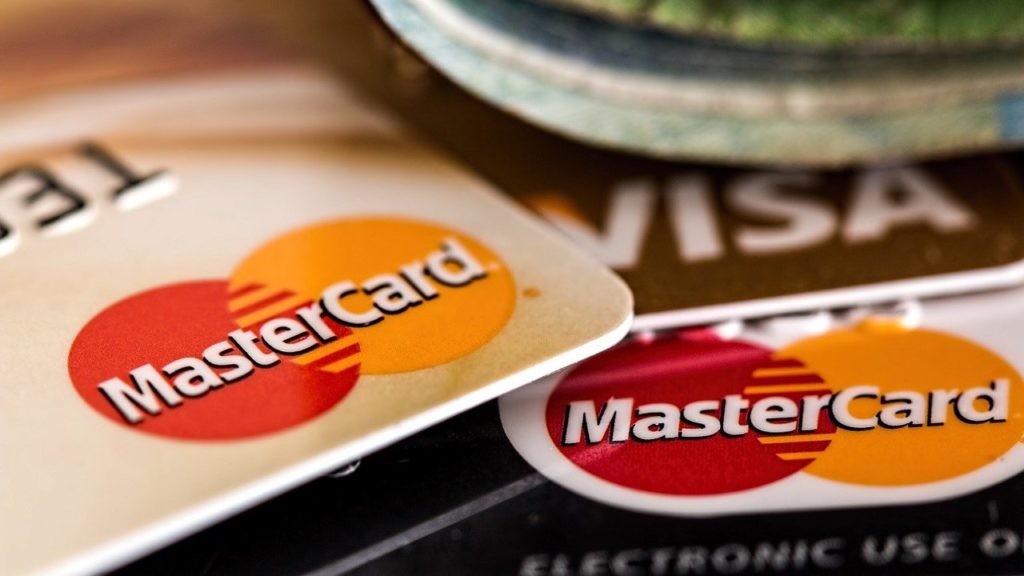by Peter Schiff, Schiff Gold:

The “resilient” American consumer seems to be running out of gas.
Americans are still running up credit card debt but at a much slower pace. Meanwhile, borrowing for big-ticket items has cratered.
Total consumer debt rose by $5.2 billion in October, according to the latest data from the Federal Reserve. That was a relatively small 1.2% increase.
Americans now owe $4.99 trillion in consumer debt.
TRUTH LIVES on at https://sgtreport.tv/
The Federal Reserve consumer debt figures include credit card debt, student loans, and auto loans, but do not factor in mortgage debt. When you include mortgages, US households are buried under a record level of debt. As of the end of the third quarter, total household debt was $17.29 trillion.
As prices skyrocketed last year, Americans blew through their savings to make ends meet. Aggregate savings peaked at $2.1 trillion in August 2021. As of June, the San Francisco Fed estimated that aggregate savings had dropped to $190 billion.
In other words, Americans ate away $1.9 trillion in savings in just two years.
Then they turned to credit cards.
Now it appears people are maxing out their credit cards. Borrowing is slowing.
In October, revolving credit, primarily made up of credit card debt, rose by $2.8 billion, a 2.7% increase. That was the smallest increase in several months.
Americans now owe just under $1.3 trillion in revolving credit.
The bigger problem is the double whammy of rising debt and rising interest rates. Average credit card interest rates eclipsed the previous record high of 17.87% months ago. The average annual percentage rate (APR) currently stands at 20.72%.
As a result, more and more Americans are struggling to pay their credit card balances.
Economist Carl Weinberg told CNBC that Americans are about to wake up to an ugly reality – interest expense on their credit cards is out of control.
Consumers are just waking up to the fact that they’re financing their spending by running up their credit cards and that the interest on those credit cards is over the top, out of control, off the hook right now. That’s going to lead to, I think, a retrenchment in consumer spending, as we get into the new year.”
We may already be seeing that “retrenchment.” That’s not good news for an economy that depends on consumers borrowing and spending to keep it running.
The mainstream is banking on a “Goldilocks” scenario where consumer spending slows enough to tamp down price inflation but not enough to spin the economy into a recession. Weinberg said there is a “non-trivial risk” that consumers have borrowed themselves into trouble.
Real incomes have just started coming back again, and not by nearly enough to cover some of the increases in the debt burdens that we’re seeing. So credit to the household sector, consumer credit cards, that’s where the downside risk is. That’s where the risk to this Goldilocks forecast is, and I’m watching it.”
Peter Schiff doesn’t think the soft landing is even possible given the Federal Reserve interest rate hikes. There is simply too much debt out there. And the economy depends on even more debt to keep plugging along.
History makes it clear that the Federal Reserve has a hard time normalizing rates. In fact, the attempt to bring rates from around 1% to just over 5% in 2007 led to the greatest recession since the Great Depression.
So, why would anyone believe that the Fed can normalize rates now and not have a similar consequence? Because, after all, the rate hikes expose all of the malinvestments and the misallocation of resources that take place when rates are artificially low.”
Spending on big-ticket items has already plunged. Non-revolving credit, primarily made up of auto loans, student loans, and loans for other durable goods, rose by just $2.2 billion, a small 1.2% increase.
On average, non-revolving debt has increased by 5% on an annual basis.
The plunge in non-revolving credit indicates consumers have cut back spending on big-ticket items. That could signal that the economy is slipping toward a recession.



